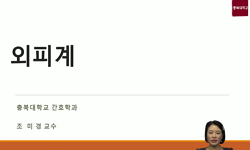Purpose: This study analyzed nursing students’ guided reflective journals following simulation-based practice using standardized patients for the initial care of older adults experiencing falls. It aimed to provide a deeper understanding of how chan...
http://chineseinput.net/에서 pinyin(병음)방식으로 중국어를 변환할 수 있습니다.
변환된 중국어를 복사하여 사용하시면 됩니다.
- 中文 을 입력하시려면 zhongwen을 입력하시고 space를누르시면됩니다.
- 北京 을 입력하시려면 beijing을 입력하시고 space를 누르시면 됩니다.


A Qualitative Content Analysis of Nursing Students’ Guided Reflective Journal Writing Following Simulation-Based Practice for the Initial Management of Falls in Older Adults
한글로보기https://www.riss.kr/link?id=A109740346
-
저자
Gi Yon Kim (Yonsei University) ; Youn-Jung Son (Chung-Ang University) ; Go Eun Choi (Yonsei University) ; Jung-Won Ahn (Gangneung-Wonju National University)
- 발행기관
- 학술지명
- 권호사항
-
발행연도
2025
-
작성언어
English
- 주제어
-
등재정보
KCI등재,SCOPUS
-
자료형태
학술저널
- 발행기관 URL
-
수록면
91-103(13쪽)
- DOI식별코드
- 제공처
-
0
상세조회 -
0
다운로드
부가정보
다국어 초록 (Multilingual Abstract)
Purpose: This study analyzed nursing students’ guided reflective journals following simulation-based practice using standardized patients for the initial care of older adults experiencing falls. It aimed to provide a deeper understanding of how changes in students’ thinking occurred through the learning experience and to describe their levels of reflection. Methods: An eight-hour simulation-based education program was implemented during a geriatric clinical practicum. The program consisted of orientation, pre-learning activities, simulation practice, and a wrap-up session. Reflective journals from 53 third-year nursing students were analyzed using qualitative content analysis. Results: Fifty-three third-year nursing students participated and submitted reflective journals. Three categories emerged from the analysis: “preparing for simulation-based practice,” which involved students setting care plans and employing observation; (2) “experiencing patient fall management through simulation-based practice,” where students actively engaged in realistic fall management scenarios; and (3) “critical reflection after simulation-based practice,” encompassing students’ acquisition of new insights and their personal growth. In the first category, students prepared for patient encounters by developing care plans and conducting observations. The second category highlighted realistic fall management scenarios utilizing standardized patients. The third category focused on personal growth through critical reflection. In the 53 reflective journals (185,021 words), level 3 reflections accounted for 31.6% of the content, while level 5, the highest reflection level, comprised only 8.6%. Conclusion: Post-simulation reflective journaling stimulated critical thinking and self-assessment, enabling nursing students to analyze and reflect deeply on clinical practices. This process reinforced their knowledge base and behavioral foundations essential for clinical practice.
동일학술지(권/호) 다른 논문
-
- 한국성인간호학회
- Saeun Cheon
- 2025
- KCI등재,SCOPUS
-
Retraction notice: Korean and United States: Comparison of Costs of Nursing Interventions
- 한국성인간호학회
- Hong, Sung-Jung
- 2025
- KCI등재,SCOPUS
-
- 한국성인간호학회
- YuJin Seo
- 2025
- KCI등재,SCOPUS
-
- 한국성인간호학회
- Hye-Jin Kim
- 2025
- KCI등재,SCOPUS




 KCI
KCI DBpia
DBpia






